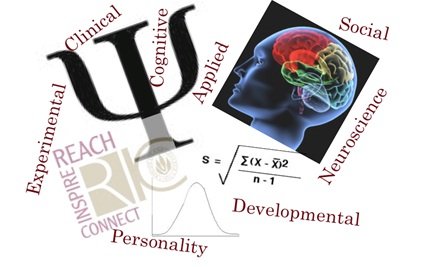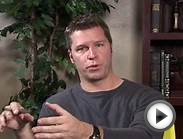 Research Psychology is not itself a field or job, but a category of exciting research opportunities within psychology. Virtually every branch of psychology, from clinical to developmental to experimental, conducts research on the topics of interest to it. A social psychologist might attempt to understand the formation of attitudes or social processes. An experimental psychologist might try to fathom the mysteries of the human mind or study the behaviors of non-human animals. A clinical psychologist might investigate the effectiveness of a particular psychotherapy or attempt to understand abnormality. And, developmental psychologists would be interested in studying issues related to the development and parenting of children. These, of course, are just a few examples of the many, many topics which research psychologists study and try to better understand.
Research Psychology is not itself a field or job, but a category of exciting research opportunities within psychology. Virtually every branch of psychology, from clinical to developmental to experimental, conducts research on the topics of interest to it. A social psychologist might attempt to understand the formation of attitudes or social processes. An experimental psychologist might try to fathom the mysteries of the human mind or study the behaviors of non-human animals. A clinical psychologist might investigate the effectiveness of a particular psychotherapy or attempt to understand abnormality. And, developmental psychologists would be interested in studying issues related to the development and parenting of children. These, of course, are just a few examples of the many, many topics which research psychologists study and try to better understand.
Research psychologists are found in several different work settings. The vast majority work in universities and colleges either as teaching faculty or as full-time researches. Typically, research is considered only a portion of their jobs, with the remainder comprised of teaching and university service. Usually some ability to do research is thought to be important for most university teaching positions. Many other research psychologists are employed by state and federal governments, the military, or large corporations and businesses. Psychologists might be involved in polling political attitudes, testing a new drug, engineering and designing buildings or automobiles, surveying the best marketing strategy, or exploring the most efficient means of turning out a particular product.
Because the research topics vary so greatly, it is impossible to discuss them all here. For specifics, you would be better served by talking to faculty members about the areas of interest to you. However, some commonalties among the various types of investigations do emerge, and might provide you with a "flavor" for a research career. Most, if not all, research psychologists use some form of scientific method to test their hypotheses and study their subject matter. In this sense, then, they divide their research time among the following activities: thinking about the studies of interest, designing ways of investigating it, actually doing the studies designed, analyzing the resulting data from the investigation, and finally, interpreting and perhaps publishing the results. There is no one location for these investigations. Depending on the topic, these activities may occur in the laboratory, the therapy room, the community, or any number of places.
How can I prepare myself to be a Research Psychologist?
Doing independent research in psychology typically requires post-graduate study. Graduate schools provide the necessary advanced coursework as well as experience with a recognized researcher. Often, fledgling researchers serve a kind of apprenticeship with one or more faculty members in order to learn the skills necessary for conducting independent research. These efforts usually center upon the student's mater's thesis and/or doctoral dissertation. Advanced coursework in statistics and experimental design as well as the topic area of the investigation is always helpful. (Consult your "Career Guide" for information on how to get into graduate school.)
Source: www.baylor.edu

|
Majoring in Psychology: Achieving Your Educational and Career Goals Book (Wiley-Blackwell)
|
You might also like:























 Psychologist is a professional or academic title used by individuals who are either:
Psychologist is a professional or academic title used by individuals who are either: Social psychology is the scientific study of how people's thoughts, feelings, and behaviors are influenced by the actual, imagined, or implied presence of others. By this definition, scientific refers to the empirical method of investigation. The terms thoughts...
Social psychology is the scientific study of how people's thoughts, feelings, and behaviors are influenced by the actual, imagined, or implied presence of others. By this definition, scientific refers to the empirical method of investigation. The terms thoughts...
 The term parapsychology was coined in or around 1889 by philosopher Max Dessoir, and originates from para meaning "alongside", and psychology. The term was adopted by J.B. Rhine in the 1930s as a replacement for the term psychical research. Parapsychologists study a...
The term parapsychology was coined in or around 1889 by philosopher Max Dessoir, and originates from para meaning "alongside", and psychology. The term was adopted by J.B. Rhine in the 1930s as a replacement for the term psychical research. Parapsychologists study a...
How the human mind basically works and responds to stimuli in different situations. How people develop bond or connections with each other and how the human mind ties in with emotions. How exactly certain environment impact the individuals thought processes.